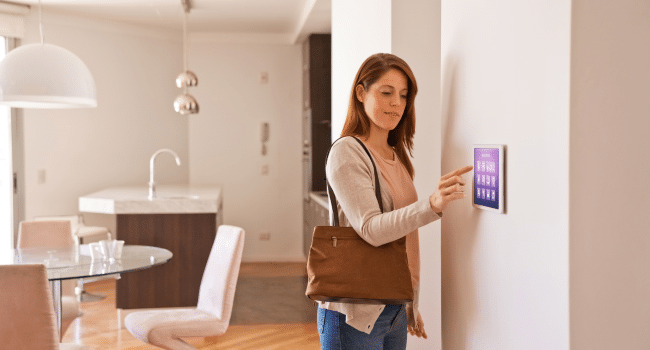Table of Contents
In an era where technology is reshaping industries, apartment security is no exception. Traditional security guards have long been the go-to solution for apartment complexes, but with advancements in artificial intelligence (AI), a new alternative is emerging. AI-driven monitoring systems are revolutionizing how residential buildings handle security, providing cost-effective, efficient, and reliable protection. This article explores why AI monitoring is becoming a preferred apartment security guard alternative and how it is transforming the landscape of residential safety.
The Challenges of Traditional Security Guards
While security guards play a critical role in apartment safety, they come with several limitations. One of the most significant drawbacks is cost. Hiring a team of security personnel can be expensive, with salaries, benefits, and training adding up quickly. Additionally, human guards are limited by physical constraints—they require breaks, can be distracted, and may not always be available when needed.
Another challenge is consistency. While many security guards are diligent and professional, there are instances of negligence, fatigue, or even misconduct. The effectiveness of a human guard depends on their awareness and ability to respond promptly, which can sometimes be compromised. Furthermore, security guards may not always deter crime effectively, as criminals often study their routines and identify gaps in surveillance.
AI Monitoring: A Game-Changer in Apartment Security
AI monitoring presents a modern solution to the limitations of traditional security guards. Powered by sophisticated algorithms, machine learning, and real-time data processing, AI security systems offer a robust and consistent approach to residential safety. Here’s why more apartment complexes are adopting AI as an apartment security guard alternative:
1. 24/7 Surveillance Without Fatigue
AI-driven security systems operate around the clock without the need for breaks or shift changes. Unlike human guards, AI never gets tired or distracted, ensuring that every moment is monitored with precision. This continuous surveillance significantly reduces the chances of security breaches.
2. Advanced Threat Detection
Modern AI security systems are equipped with advanced analytics that can identify suspicious activities, unauthorized access, and potential threats in real time. By analyzing movement patterns, facial recognition, and behavior analysis, AI can quickly detect anomalies that may go unnoticed by human guards.
3. Cost-Effective Solution
One of the biggest advantages of AI monitoring is cost savings. While the initial investment in AI security infrastructure may seem high, it is often more affordable in the long run compared to paying salaries and benefits for a team of security guards. Additionally, AI reduces liability risks associated with human error.
4. Integration with Smart Technology
AI security systems seamlessly integrate with existing smart building technologies, such as keyless entry systems, video intercoms, and automated emergency response mechanisms. This interconnected approach enhances overall security by creating a cohesive network that responds intelligently to threats.
5. Real-Time Alerts and Remote Monitoring
AI security solutions provide real-time alerts to property managers and residents. If a security breach is detected, notifications are sent immediately to relevant parties, allowing for a swift response. Additionally, remote monitoring capabilities enable security teams to oversee multiple apartment complexes from a centralized location.
6. Reducing False Alarms
Traditional security systems often trigger false alarms due to environmental factors such as animals, weather conditions, or human error. AI-powered security systems use deep learning to distinguish between genuine threats and non-threatening events, reducing the number of false alarms and unnecessary interventions.
Addressing Concerns About AI Security Systems
While AI monitoring offers numerous benefits, some concerns need to be addressed. Privacy is a major topic of discussion, as residents may worry about being constantly watched. To mitigate this, apartment complexes must implement transparent policies regarding data collection and storage, ensuring that AI systems comply with legal and ethical standards.
Another challenge is the potential for system failures or hacking attempts. To enhance security, AI systems should be regularly updated, encrypted, and integrated with cybersecurity protocols to prevent unauthorized access.
The Future of Apartment Security
As AI technology continues to evolve, its role in apartment security will expand further. Future advancements may include predictive analytics, where AI anticipates security threats before they occur, and enhanced biometric verification for personalized security access.
The shift towards AI monitoring does not necessarily mean the complete replacement of human security personnel. Instead, a hybrid model that combines AI technology with human oversight may offer the best solution, leveraging the strengths of both.
Conclusion
The growing popularity of AI monitoring as an apartment security guard alternative is a testament to its effectiveness. With 24/7 surveillance, advanced threat detection, cost savings, and seamless integration with smart technology, AI security systems provide a reliable and innovative approach to residential safety. As technology advances, AI will play an increasingly vital role in shaping the future of apartment security, offering both residents and property managers peace of mind in an ever-evolving world.
